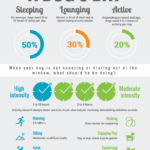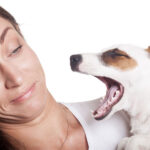Why Does My Dogs Mouth Quiver
Quivering Mouth in Dogs: What It Means and How to Help
Dogs communicate with us in many ways, from barking and wagging their tails to licking our faces and cuddling on our laps. However, sometimes dogs display behaviors that we don’t understand or even find concerning, such as quivering their mouths. If you have noticed your dog doing this, you may wonder why and what you can do to address it. In this article, we will explore the possible reasons for a dog’s quivering mouth and provide some tips on how to handle it.
What is a Quivering Mouth?
First of all, let’s define what a quivering mouth looks like in dogs. Depending on the context and the individual dog, a quivering mouth can manifest in various ways, including:
– Trembling lips
– Chattering teeth
– Drooling excessively
– Making smacking or clicking sounds
– Sticking out the tongue repeatedly
– Licking the air or nearby objects
– Swallowing frequently
A quivering mouth may occur alone or together with other signs of stress, anxiety, pain, excitement, or illness. Therefore, it’s essential to observe your dog’s body language and overall behavior before jumping to conclusions about what the quivering means.
Reasons for a Dog’s Quivering Mouth
Now that we know what a quivering mouth is let’s examine some possible causes for this behavior in dogs. Please note that this list is not exhaustive nor definitive, as each dog is unique and may show different responses to internal and external stimuli.
1. Emotions
Dogs are emotional creatures who experience a wide range of feelings, including joy, fear, anger, sadness, love, and more. Sometimes a dog’s mouth may quiver due to intense emotions that they struggle to express verbally or physically. For example:
– A dog who feels excited about seeing their owner after a long absence may quiver their mouth as a sign of anticipation or arousal.
– A dog who feels afraid of loud noises, unfamiliar people, or other dogs may quiver their mouth as a way to cope with stress or anxiety.
– A dog who feels frustrated or annoyed by not getting what they want (e.g., food, attention, toys) may quiver their mouth as a mild form of protest.
In these cases, the quivering mouth is usually temporary and subsides once the dog’s emotions settle down. However, if your dog shows persistent signs of emotional distress, such as pacing, panting, hiding, growling, or biting, you may need to seek professional help from a veterinarian or a certified behaviorist.
2. Pain
Dogs can’t tell us when they are in pain, but they can show us through body language and vocalizations. A quivering mouth may indicate that your dog is experiencing discomfort in their mouth or jaw area. Some common causes of dental pain in dogs include:
– Tooth decay
– Gum disease
– Broken teeth
– Abscesses
– Oral tumors
– Foreign objects lodged in the mouth
If your dog’s quivering mouth is accompanied by drooling, pawing at the face, reluctance to eat or drink, bad breath, bleeding gums, or other signs of oral problems, you should take them to a veterinarian for an examination and possible treatment. Ignoring dental issues can lead to more severe health problems and even shorten your dog’s lifespan.
3. Seizures
A seizure is a sudden burst of abnormal electrical activity in the brain that can cause various physical and behavioral symptoms. While most seizures in dogs are idiopathic (meaning no known cause), some can be triggered by underlying medical conditions such as epilepsy, liver disease, kidney failure, brain tumors, or toxins. During a seizure episode, a dog’s entire body may convulse, and their mouth may quiver or foam. Seizures can be scary to witness, but they usually last only a few minutes and are followed by a period of confusion or sleepiness.
If your dog has a seizure, stay calm and keep them away from any hazards (e.g., sharp objects, stairs, water). Don’t try to restrain or move them unless necessary for safety reasons. After the seizure subsides, contact your veterinarian for advice on how to proceed. They may recommend some diagnostic tests or medications to help manage your dog’s seizures.
4. Cold
Sometimes dogs shiver or quiver their mouths due to feeling cold or chilly. This is especially common in small breeds or dogs with short coats that don’t provide much insulation against low temperatures. If you notice your dog’s teeth chattering or lips trembling during a cold day or night, you can help them warm up by:
– Providing a cozy blanket or bed
– Turning up the heat indoors
– Dressing them in a sweater or jacket
– Covering their paws with booties
– Offering hot drinks or food (such as bone broth)
– Snuggling with them under the covers
However, if your dog shows other signs of hypothermia, such as lethargy, weakness, pale gums, shallow breathing, or decreased body temperature (below 99°F), you should seek veterinary attention immediately.
5. Other Causes
There are many other reasons why a dog’s mouth may quiver, such as:
– Neurological disorders: Some conditions affecting the nervous system can cause tremors or spasms in various parts of the body, including the mouth.
– Medications: Some drugs may have side effects such as muscle twitching or dry mouth that can make a dog’s mouth quiver.
– Allergies: Dogs who are allergic to certain foods, plants, insects, or environmental factors may develop skin rashes, itching, hives, or swelling that can extend to the mouth and cause quivering.
– Behavioral issues: Some dogs may learn to quiver their mouths as a habit or attention-seeking behavior. This is more common in puppies or dogs who lack proper training and socialization.
If you suspect that your dog’s quivering mouth is caused by any of these factors, you should consult with your veterinarian for an accurate diagnosis and treatment plan.
How to Help a Dog with a Quivering Mouth
Now that we have covered some possible reasons for a dog’s quivering mouth let’s discuss how you can help your furry friend feel better and alleviate any underlying issues. Here are some tips:
– Monitor your dog’s behavior and try to identify patterns or triggers for the quivering.
– Provide plenty of exercise, playtime, mental stimulation, and positive reinforcement training to help reduce stress and anxiety levels.
– Schedule regular dental checkups and cleanings for your dog to maintain good oral hygiene and prevent tooth decay or gum disease.
– Consider feeding your dog a balanced diet that meets their nutritional needs and avoids allergens or additives that may cause adverse reactions.
– Use natural remedies such as herbs, supplements, or aromatherapy (with caution) to support your dog’s health and wellbeing.
– Ask your veterinarian about medications or treatments that may be appropriate for specific medical conditions or behavioral problems.
Remember that each dog is unique and requires individualized care based on their age, breed, temperament, lifestyle, and health status. Don’t hesitate to seek professional advice if you have any concerns about your dog’s behavior or health.
Conclusion
A quivering mouth in dogs can be caused by various factors related to emotions, pain, seizures, cold weather, allergies, or other conditions. It’s essential to observe your dog’s body language and overall behavior before interpreting the quivering as a sign of something serious. By understanding why dogs quiver their mouths and how to help them, you can strengthen your bond with your furry friend and provide them with the best possible care. So, next ti



